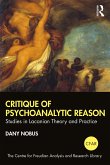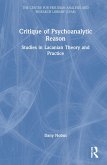This book takes Edmund Husserl's phenomenology and applies it to help psychotherapy practitioners formulate complex psychological problems. The reader will learn about Husserl's system of understanding and its concepts that can point to first-person lived experience, and about the work of Husserl scholars who have developed a way to be precise about the experiences that clients have. Through exploring the connection between academic philosophy of consciousness and mental health, themes of biopsychosocial treatment planning, psychopathology of personality and psychological disorders, and the treatment of complex psychological problems all emerge. The author shows that Husserlian phenomenology can be used in the design of interventions for each client in a process called formulation. Once the intentionality of consciousness of an individual is understood, by asking simple questions, it becomes possible to define problematic experiences. This is a means of creating informed consent for treatment and it also makes it clear to clients what is happening for them, so helping them understand themselves and how they see the world. We also see how Husserl's phenomenology is a vehicle for psychotherapists to present their knowledge about the research literature of what has been found to be effective care. This volume applies the concepts and practices of phenomenology in a concrete way, relating them to the practice of therapy and showing the value of a qualitative approach to understanding mental processes and the nature of human beings as motivated by values, meanings and other conscious experiences. This is a readable text in simple language that condenses key aspects of Husserl's thinking in relation to the theory and practice of psychotherapy, and it is suitable for philosophers and practitioners of psychology, psychiatry, and the psychotherapies, including psychoanalysis.
Bitte wählen Sie Ihr Anliegen aus.
Rechnungen
Retourenschein anfordern
Bestellstatus
Storno








